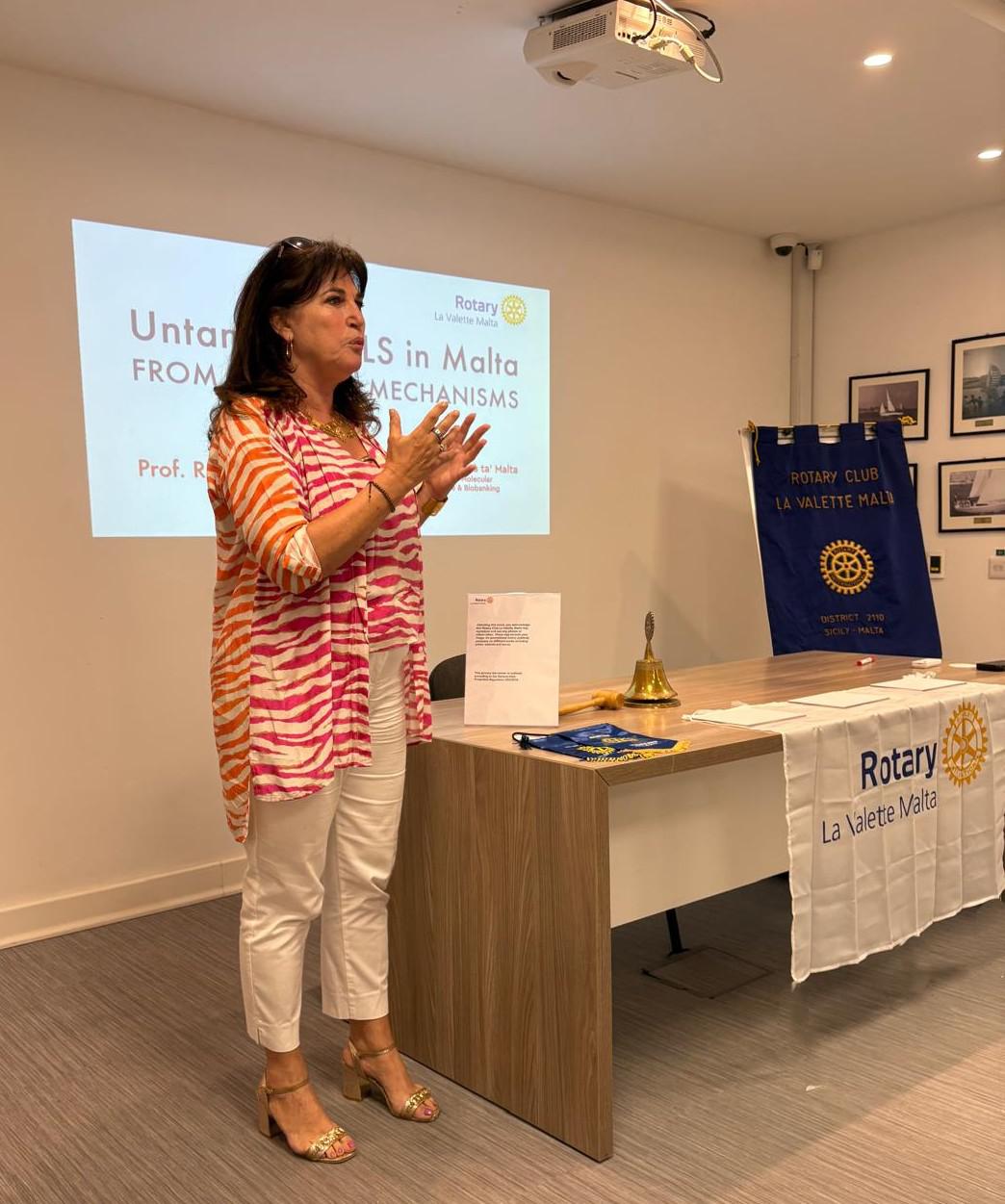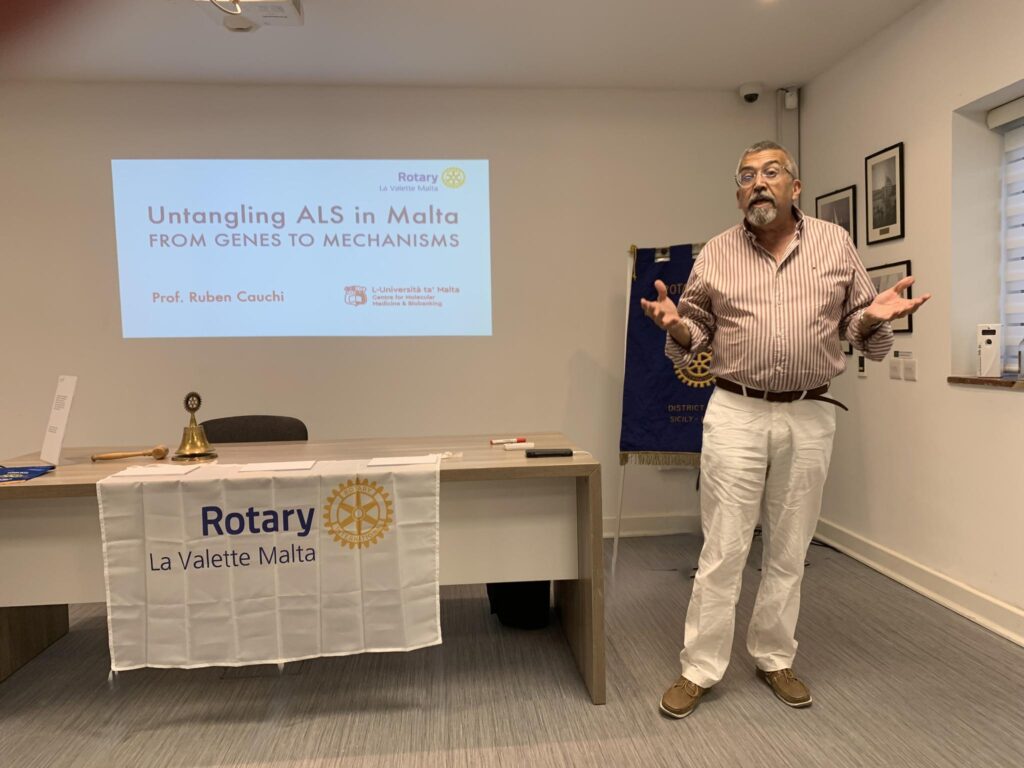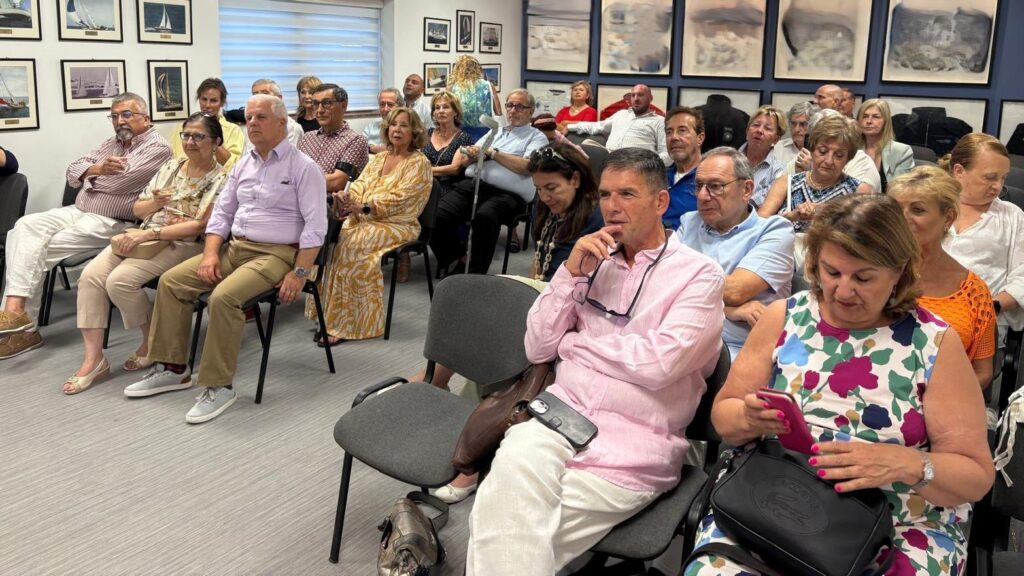
- This event has passed.
Fellowship Talk: ALS Genome Research & Mapping

Presented by Prof. Reuben Cauchi
Rotary Club La Valette recently hosted an insightful Fellowship Talk on ALS Genome Research & Mapping, presented by Prof. Reuben J. Cauchi and introduced by Mr. Wilfred Kenely. The event highlighted groundbreaking research from the University of Malta and underscored the Rotary Club’s commitment to supporting scientific advancements in neurogenetics.
Incoming President Prof. Clare Vassallo opened the session, emphasizing how this talk aligns with the Club’s 2025-26 District Funded Project. Through this initiative, Rotary Club La Valette is supporting the University of Malta, in collaboration with the Research, Innovation and Development Trust (RIDT), to advance research on amyotrophic lateral sclerosis (ALS)—a debilitating neurodegenerative disease. This project focuses explicitly on the Maltese population, where ALS is found to have a higher incidence rate compared to the European average.
Mr. Wilfred Kenely, Chief Executive of RIDT, elaborated on the organization’s mission to enhance investment in high-calibre research and development across all faculties and departments at the University of Malta, while also fostering the commercial application of scientific discoveries on a national level.
Following this, Prof. Ruben J. Cauchi, Professor of Neurogenetics at the Faculty of Medicine & Surgery and Principal Investigator at the Centre for Molecular Medicine & Biobanking, delivered a compelling presentation on groundbreaking ALS research conducted by University of Malta scientists. He shared how researchers have identified a potential new drug target for ALS, which could pave the way for novel treatments addressing a broad spectrum of patients suffering from this condition.
ALS progressively affects the nerves controlling muscle movement, leading to difficulties with mobility, speech, eating, and, ultimately, breathing. A recent study conducted by University of Malta researchers revealed that genetic factors prevalent among the Maltese significantly elevate the risk of developing ALS.
One notable discovery presented during the talk involved the SCFD1 gene. Researchers switched off this gene in fruit flies—widely used in ALS research due to their genetic similarities with humans—and observed that the flies exhibited ALS-like symptoms, such as reduced mobility and weakened nerve-muscle connections. This breakthrough offers promising avenues for further investigations into targeted treatments.
The Fellowship Talk was well-attended by Rotarians and guests, who expressed great interest in the discussion and the potential impact of the findings. Through events like these, Rotary Club La Valette continues to foster community engagement with scientific research while championing meaningful contributions to public health initiatives.



